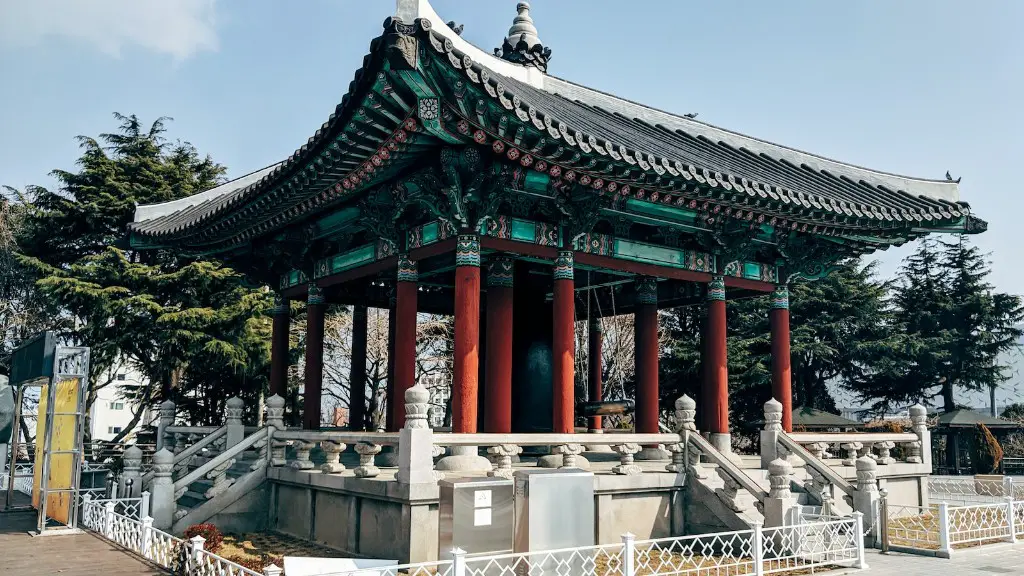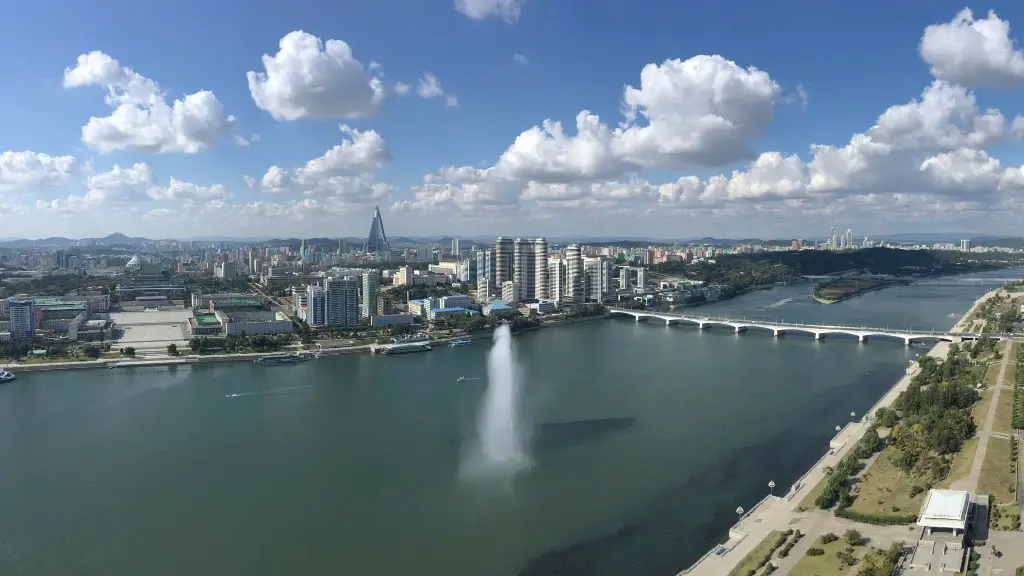Overview
The official answer to whether or not the US declared war on North Korea in 1950 is no. Despite the fact that the two countries were were engaged in military conflict during the outbreak of the Korean War, there was never an official declaration of war from either side. Nonetheless, the events in June of 1950 that led to open hostilities in Korea were considered the equivalent of a declaration of war.
The Korean War was the first armed conflict of the Cold War, and was an important factor in the formation of geopolitical alliances around the world. It was a major regional war involving both North and South Korea, as well as a number of other countries. The US was one of the leading participants in the war.
Background
The conflict that would become known as the Korean War began in June of 1950 when North Korea, backed by the Soviet Union, invaded South Korea. The North Korean forces moved quickly, desrmining the large majority of the terrain on the peninsula. The South Korean forces and their US allies offered little resistance and retreated to the safety of the Pusan perimeter.
In response to the North Korean aggression, the United Nations Security Council denounced the attack and authorized the use of military force to repulse North Korea. The Security Council was led by the United States, which used its veto power to block the Soviet Union’s objections to the resolution.
US Involvement
The US initially responded to the North Korean invasion with an economic blockade. However, the UN Security Council ultimately authorized the use of armed force, prompting the US to take a more active role. President Truman ordered US forces to the region, and by the end of September 1950, a combined United Nations force was assembled under US command.
The US forces, led by General Douglas MacArthur, shifted the tide of the war in favor of the South Korean forces. Soon US forces had pushed the North Koreans back up to the Chinese border. In response to the advancement of US forces, China entered the war by sending troops across the border to aid North Korea.
The End Result
Though the US and its allies had effectively pushed the North Koreans out of the South, the conflict couldn’t be decisively ended until the two sides reached a political agreement. After two years of brutal fighting and massive casualties on both sides, the two sides signed an armistice in July of 1953. This armistice ended the open fighting, though it never established a permanent peace and the two sides remain at a stalemate to this day.
Though the US and its allies ultimately ended up in a stalemate with the North Koreans, it did achieve its objectives of preventing the reunification of Korea under a communist government. As a result, South Korea has become one of the most vibrant democracies and economic powerhouses in the world.
Impact on US Policy
The Korean War had a great impact on US foreign policy, as it was the first direct major military conflict between the US and the Soviet Union. The fact that the US was able to successfully repulse North Korea and prevent the reunification of Korea under communist rule under the shadow of the US atomic bomb assured US foreign policy makers that they could rely on the US military to protect US interests worldwide. The Korean War also provided important lessons on the use of limited wars to achieve political objectives.
Enduring Legacy
The Korean War, though technically still unresolved, has left an enduring legacy with implications for the modern world. The war was a critical factor in the formation of geopolitical alliances around the world, as cold war powers jostled for control of the Korean peninsula. Though the war ended in a stalemate, it underscored the power of the US military and showed that limited wars could be used to achieve political objectives.
Popular Memory
Though the Korean War has been largely forgotten in popular memory, it still remains vivid in the minds of the veterans and families of those who fought in the war. The war was brutal and bloody, and claimed millions of lives on both sides. Those on the inside of the conflict still find it hard to forget the violence and destruction of the war.
The war also left a lasting impression on South Korea, and the country has become one of the most successful democracies in the world. South Korea has achieved economic success and international recognition largely due to the role that the US played in repulsing the North Koreans in 1950.
Conclusion of the War
Though the US did not officially declare war on North Korea in 1950, the events of that fateful year have reverberated to this day. The US and its allies successfully repulsed the North Koreans and prevented the reunification of the peninsula under a communist government. Though the war ended in a stalemate, the US was able to achieve its political objectives and the South developed into one of the most vibrant democracies in the world.
Far-Reaching Implications
The Korean War had far-reaching implications for the modern world, as it was a major factor in the formation of geopolitical alliances around the globe. Furthermore, it highlighted the importance of the US military in defending US interests and showed that limited wars could be used to achieve political goals. The war has largely been forgotten in the popular consciousness, but the lessons it taught still linger.
Geopolitical Realignments
The Korean War had a significant impact on the alignment of geopolitical forces around the world. Though the two sides remained largely stalemated on the peninsula, the war led to the forging of alliances between countries on each side of the Iron Curtain. The US established close ties with countries like Japan, South Korea, and the Philippines in order to prevent the spread of communism. It also allowed the US to emerge as the primary power in East Asia and the Pacific.
Cultural Impact
The war had a significant impact on popular culture in the United States. In particular, the image of the returning veteran, scarred from the horror of war, had a profound impact on the American public. It raised awareness of the horror and destruction of war, and served as a powerful reminder of the cost of freedom.
The war also left an enduring mark on South Korea. The people of South Korea have a developed a deep appreciation for the US involvement in the war and South Korea has arguably become one of the most successful democracies in the world due in part to the US assistance in repelling the North Koreans.




